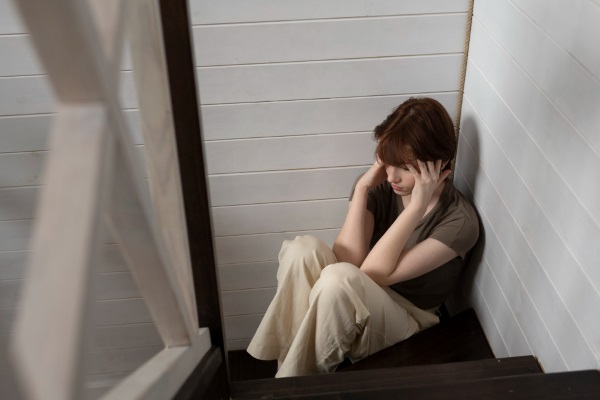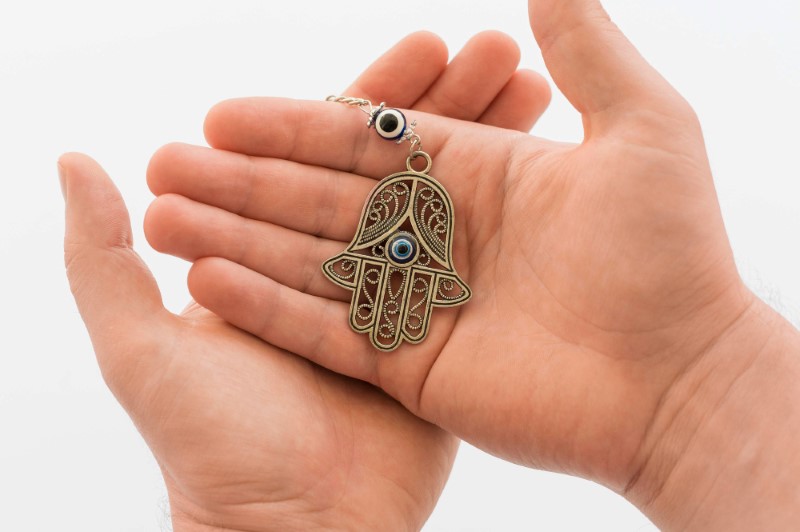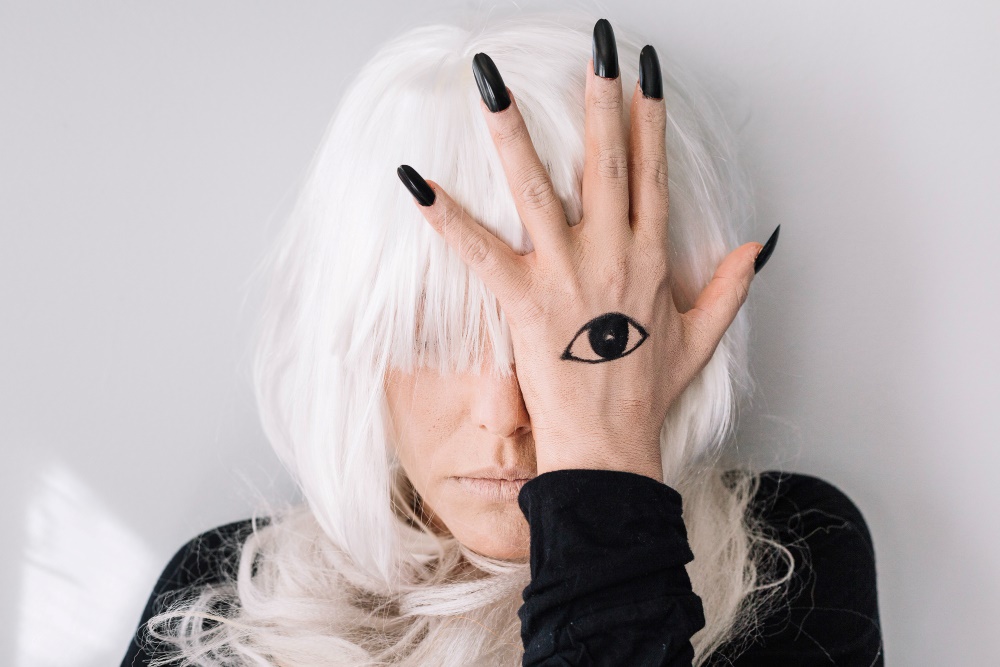Have you ever felt like things were going wrong for no apparent reason? Maybe you’ve experienced a sudden string of bad luck, or perhaps you just feel inexplicably unwell. While there can be many explanations for such experiences, some people believe they might be under the influence of something called the “evil eye.” Understanding how to know if someone has evil eye on you is a concept that spans cultures and centuries. This article will explore the signs, symptoms, and ways to protect yourself from this ancient belief.
The concept of the evil eye is not new. It’s a belief that dates back thousands of years, found in various cultures across the globe. The belief in a malevolent glare causing misfortune exists across many cultures. From ancient Greece and Rome to the Middle East, Latin America, and parts of Asia, people fear that an envious or ill-intentioned look can bring harm, sickness, or bad luck. The person casting the evil eye might not even be aware they are doing it. In some cultures, it’s believed that certain people have an innate ability to cast the evil eye, sometimes unintentionally.
The effects of the evil eye are said to vary widely. They can range from minor inconveniences like headaches or a feeling of unease to more significant problems such as financial difficulties, relationship troubles, or even physical illness. The suddenness and lack of logical explanation for these misfortunes often lead people to suspect the influence of the evil eye.
Understanding the Belief in the Evil Eye
Before diving into how to know if someone has evil eye on you, it’s important to understand the core belief. At its heart, the evil eye is thought to be a negative energy transmitted through a look. This look is usually fueled by feelings of jealousy, resentment, or even just intense admiration that carries an unconscious negative charge. The person casting the evil eye might not even be aware they are doing it. In some cultures, it’s believed that certain people have an innate ability to cast the evil eye, sometimes unintentionally.
The effects of the evil eye are said to vary widely. They can range from minor inconveniences like headaches or a feeling of unease to more significant problems such as financial difficulties, relationship troubles, or even physical illness. The suddenness and lack of logical explanation for these misfortunes often lead people to suspect the influence of the evil eye.
Recognizing Potential Signs and Symptoms
So, how to know if someone has evil eye on you? While there’s no definitive scientific test, there are several commonly reported signs and symptoms that people associate with being under its influence. These signs often manifest in unexpected and persistent ways.

Sudden Onset of Bad Luck
One of the most frequently cited signs is a sudden onset of bad luck. This could involve a series of unfortunate events happening in quick succession, seemingly without any logical cause. For example, you might suddenly experience car trouble, lose your wallet, and have an argument with a loved one all in the same day or week. While isolated incidents of bad luck are normal, a persistent and unusual pattern might raise suspicion.
Unexplained Physical Discomfort
Another common symptom is a feeling of general malaise or unexplained sickness. You might feel tired, weak, or experience headaches without any apparent medical reason. Sometimes, people report feeling nauseous or dizzy. These physical symptoms can be persistent and resistant to typical remedies, leading some to believe in an external negative influence.
Emotional Distress and Unease
Emotional distress can also be a sign. This might manifest as sudden feelings of anxiety, sadness, or irritability. You might feel overwhelmed or emotionally drained for no clear reason. Difficulty sleeping, nightmares, or a general sense of unease can also be indicators. These emotional shifts can be particularly noticeable if they are out of character for you.
Signs in Infants and Children
In children and babies, the signs of the evil eye are often thought to be more pronounced. Excessive crying, fussiness, and difficulty feeding are commonly attributed to it. Sudden fevers or unexplained illnesses in infants are also sometimes seen as potential signs.
Persistent Health Problems
Sudden illnesses, infections, or stomach issues that appear out of nowhere might be linked to the evil eye. If treatments do not work and doctors cannot find a reason, this could be a sign.
Sleep Disturbances and Nightmares
Having trouble sleeping? If you wake up in the middle of the night feeling anxious or have disturbing dreams, negative energy might be affecting your peace.
Things Breaking or Going Wrong at Home
Appliances, lights, or electronic devices breaking down repeatedly? When objects fall, crack, or stop working suddenly, it might not just be bad luck—it could be a sign of the evil eye.

Financial and Relationship Troubles
For those experiencing financial difficulties, a sudden downturn in their finances or business could be interpreted as the evil eye. This might involve unexpected losses, failed investments, or a general inability to succeed despite their best efforts. Similarly, relationship problems that arise suddenly and without clear cause might also be attributed to negative external influences.
It’s important to remember that these signs and symptoms are subjective and can have various other explanations. However, if you experience a combination of these issues, particularly if they arise suddenly and persist despite your efforts to resolve them, the possibility of the evil eye might cross your mind.
Cultural Variations in Beliefs and Signs
The specific signs and symptoms associated with the evil eye can vary across different cultures. For instance, in some Mediterranean countries, sudden headaches, especially in the back of the head, are a common sign. In other cultures, frequent yawning or hiccupping might be interpreted as an indication of the evil eye’s influence.
In some Latin American countries, a sudden illness in livestock or the unexplained spoilage of food might be attributed to the evil eye. Similarly, in some parts of Asia, a thriving plant suddenly wilting or a piece of machinery breaking down unexpectedly could be seen as a sign.
These cultural variations highlight the deeply ingrained nature of this belief and how it manifests in different aspects of life. While the core idea of negative energy being transmitted through a look remains consistent, the specific ways it’s believed to manifest can differ significantly.
Methods of Protection Against the Evil Eye
If you suspect that you might be under the influence of the evil eye, or if you simply want to take preventative measures, many cultures offer various methods of protection. These practices often involve symbolic objects, rituals, or prayers believed to ward off negative energy.

The Power of Amulets: The Nazar
One of the most widely recognized symbols of protection against the evil eye is the “nazar,” often referred to as an evil eye amulet. This is typically a blue bead with a white and black circle in the center, resembling an eye. It is believed that the amulet absorbs the negative energy of the evil eye, protecting the wearer or the object it is placed upon. You can find nazar amulets worn as jewelry, hung in homes and offices, or even placed in vehicles.
Utilizing Protective Colors
Another common protective measure involves the use of specific colors, particularly blue. In many cultures, blue is considered a powerful color that can deflect negative energy. Wearing blue clothing or having blue objects around you is thought to offer protection.
Gemstones for Defense
Certain gemstones, such as turquoise, are also believed to possess protective properties against the evil eye. Wearing jewelry made with these stones is a common practice in some regions.
Rituals and Prayers for Cleansing
Rituals and prayers are also frequently used for protection. These might involve reciting specific verses from religious texts, performing cleansing rituals with herbs or incense, or seeking the help of a spiritual healer or religious figure. The specific rituals and prayers vary greatly depending on the cultural and religious context.
Symbolic Gestures
In some cultures, making the sign of the horns (extending the index and pinky fingers while folding the middle two fingers) is believed to ward off the evil eye. Similarly, spitting three times is another gesture that is sometimes used for protection.
The Purifying Properties of Salt
Another interesting protective measure involves the use of salt. Salt is often seen as a purifying agent that can absorb negative energy. Placing bowls of salt in different areas of the home or carrying a small bag of salt are practices believed to offer protection.
Natural Remedies: Garlic
Garlic is another natural remedy believed to ward off the evil eye. Hanging garlic cloves in the home or carrying them on your person are practices found in various cultures.
It’s important to note that the effectiveness of these protective measures is based on belief and tradition rather than scientific evidence. However, for many people, these practices provide a sense of comfort and control in the face of unexplained misfortune.
Differentiating from Other Issues
When considering how to know if someone has evil eye on you, it’s crucial to differentiate these potential signs from other possible explanations. Bad luck can simply be a part of life, and physical or emotional distress can have various medical or psychological causes. It’s always advisable to consult with healthcare professionals if you are experiencing persistent health problems or significant emotional distress. Financial difficulties or relationship problems also often have underlying causes that need to be addressed through practical and logical means.
Attributing every misfortune to the evil eye can prevent you from addressing the real issues at hand. Therefore, it’s important to maintain a balanced perspective and consider all possible explanations for your experiences.
The Psychological Impact of Believing in the Evil Eye
Regardless of its objective reality, the belief in the evil eye can have a significant psychological impact. For some people, it can provide a framework for understanding and explaining negative events that might otherwise seem random and inexplicable. This can offer a sense of closure and reduce feelings of helplessness.
However, for others, the belief in the evil eye can lead to anxiety, paranoia, and a constant feeling of being under threat. It might cause them to become overly suspicious of others and interpret even innocent interactions as potentially harmful. This can negatively impact their relationships and overall well-being.
It’s important to approach the concept of the evil eye with a healthy dose of skepticism and to avoid letting it dominate your thoughts and actions. While it’s interesting to learn about cultural beliefs and traditions, it’s equally important to focus on addressing life’s challenges in a practical and rational manner.
Conclusion: Understanding the Ancient Belief
The question of how to know if someone has evil eye on you is deeply rooted in cultural beliefs and folklore. There is no scientific evidence for the evil eye, but its presence across cultures shows its historical and psychological significance. Recognizing signs, understanding protection methods, and distinguishing it from other issues are key to engaging with this belief. Whether you believe in it or not, exploring its role in traditions offers insight into human beliefs. When facing misfortune, consider all possibilities and prioritize your well-being by seeking professional help when needed.
FAQs About the Evil Eye
1. Can the evil eye affect relationships?
Yes, the evil eye can cause misunderstandings, arguments, and distance between loved ones.
2. How do I know if my child has the evil eye?
If your child cries excessively, falls sick frequently, or becomes restless, they might be affected. A protective charm can help.
3. Can someone give me the evil eye without knowing it?
Yes, sometimes people unknowingly send negative energy through envy or admiration.
4. What should I do if I keep experiencing bad luck?
Try cleansing rituals, wear protective symbols, and avoid negative people.
5. Is the evil eye real?
While science doesn’t confirm it, many cultures strongly believe in its effects based on personal experiences.





